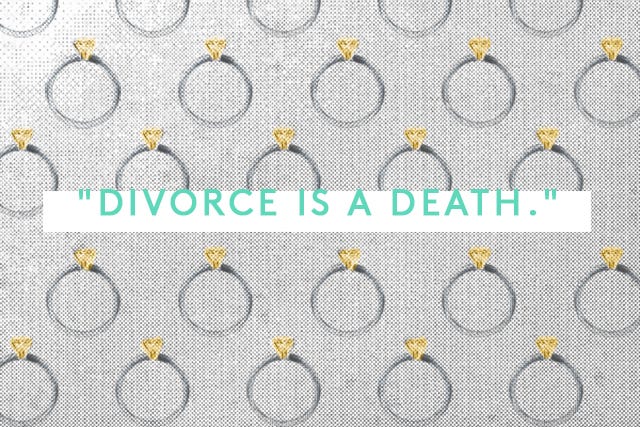
What The Numbers Tell Us
Why are so many of us getting hitched in our first decade after leaving the nest? First, Americans in their twenties are a pretty romantic and hopeful bunch: According to a Louisiana State University study, 88 percent of twenty-something American women and men believe that there is a soul mate somewhere in the world for them. Another fun fact: Neuroscience has proven via brain scans that our brains are still in developmental stages until the age of 25 or 26. And the last portion of the brain to develop is the part that’s responsible for foresight, planning ahead, and decision making.
The Feelings Piece Of The Story
Such was the case for three of four women interviewed for this story, who each married at age 23. For Shandra*, 37, the time felt right to take the next step with her high-school sweetheart. “After high school, we went to the same college and we kept going down the path. After I graduated, we lived together, then we got engaged and got married," she says. “It felt like the natural thing to do. For me, I wasn't a dating-around type. So it was kind of a 'Everything’s fine. There’s nothing bad. Why not get married?' mindset.”
 Illustrated By Ly Ngo.
Illustrated By Ly Ngo. The Reality Of Growing Apart
“I think it was kind of one of those situations where we were playing house rather than having a real marriage or relationship — probably because of our age, because we were soo young. My marriage now is so completely different,” Shandra says.

The Perks Of Breaking Up
Although divorce is challenging and mournful at any age and for anyone, research shows that women fare better post-divorce than men do. Pioneering family and gender researcher E. Mavis Heatherington, a preeminent psychologist who specialized in family interactions, found (in her landmark longitudinal studies on divorce with the University of Virginia) that while men tend to do better economically, socially, and psychologically in a marriage — even an unhappy one — than when they are single, women do better post-divorce.
Brooke, who divorced her college sweetheart, a man she fondly calls “wonderful” still today, experienced a lifestyle, rather than economic shock, right after her divorce. Suddenly, she didn’t have her best friend to confide in, to cook for, or to hang out with on a Saturday night.
“It changed the whole structure of my life,” she says. “I spent many Saturday nights home alone. All my friends were out partying, but that’s not who I am.”
The Emotional Cost Of Breaking Up
But obviously, that's not the whole story. Yes, the research and personal stories show that women thrive immediately after divorce. And yes, divorce has become so common that it has shed its stigma in many circles. But, Branschick reminds us that the process of divorce is tough and long-term recovery requires time and mourning.
 Illustrated By Ly Ngo.
Illustrated By Ly Ngo. The Truth About Grieving
Grieving the death of divorce is quite different from grieving the death of a person. Branschick says, “When someone dies, the community comes to support you. People invite you over and talk to you. When you get divorced, you’re grieving, but your community disappears. Your cousin doesn’t call because she feels awkward. You pastor wants to be good, but somehow feels anxious around people with divorce.”
A Different Kind Of Happily Ever After
While the grieving process and its many stages can take a few years, each woman interviewed for this story, having been divorced for two years or more, has found strength, confidence, and newfound focus in her life.
*All names changed, at the request of the women interviewed.






